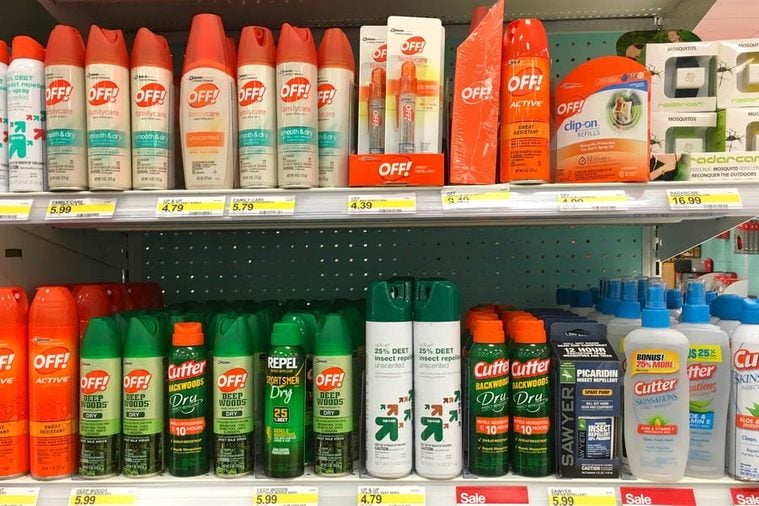Why You Should Never, Ever Spray Bug Spray in the House
Updated: Jul. 24, 2017
Forget that it stinks and you can literally taste it: Spray it indoors and you'll be living with the chemicals for a very, very long time.
 Spray those kids before they get outdoors and the mosquitoes devour them—what could be easier, right? After all, there are plenty of dangerous summer bugs they can run into, and an all-over dousing will keep them and you safe. Hang on a minute: The active chemicals in bug sprays can last for more than a year indoors, according to a new study, and that can spell trouble for your family.
Spray those kids before they get outdoors and the mosquitoes devour them—what could be easier, right? After all, there are plenty of dangerous summer bugs they can run into, and an all-over dousing will keep them and you safe. Hang on a minute: The active chemicals in bug sprays can last for more than a year indoors, according to a new study, and that can spell trouble for your family.
Research conducted by researcher Lia Nakagawa at the Biological Institute in São Paulo, Brazil, published in Environmental Toxicology and Chemistry found that pyrethroids, a common pesticide used in lower concentrations to repel bugs, can persist in household dust up to a year. When sprayed outdoors, rain, sun, and microorganisms break down the chemicals. Inside your house? Not so much.
While testing suggests the pesticide is generally safe, it can cause skin irritation, headaches, and nausea for more sensitive individuals. On a positive note, if you’re using pyrethroid products approved for indoor use to tamp down the bug population in your house, you can apply them less often thanks to the chemical’s longevity, Nakagawa told EurekAlert.
Children tend to be more susceptible to the toxicological effects of harmful substances, says Kenneth Spaeth, MD, director of the Occupational and Environmental Medicine Center at North Shore University Hospital, New York. This is because a child’s protective mechanisms are not fully developed. “Plus, their behavior also increases their risk. Children spend a lot more time on the floor, near areas where dust accumulates, and kids tend to be engaged in more hand-to-mouth activity,” adds Dr. Spaeth. “Their dose of whatever you’re dealing with, chemically, is going to be much higher. So, studies like this are certainly concerning, particularly regarding the use of chemicals that can be avoided or used in more limited ways.”
The bottom line is to apply spray outdoors, and only use as much as you need. Adds Dr. Spaeth: “In general, when it’s no longer necessary to have bug repellant on your body, remove it from the skin. However, I don’t think it’s worth making yourself crazy about. If you need bug repellant, use it, and when you’re no longer in a setting where you need it, don’t.”